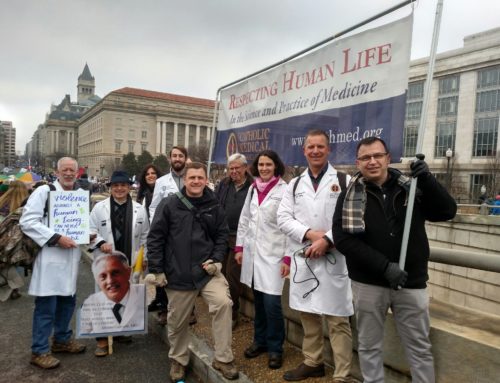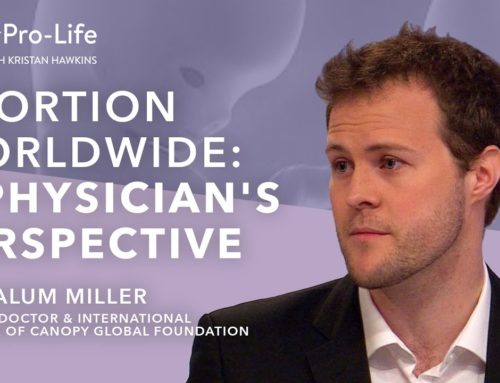10 May 1981
To the faithful in St. Peter’s Square
On Sunday, 10 May, John Paul II delivered the following address to the large numbers of faithful who crowded St. Peter’s Square to recite the “Regina Caeli” with the Pope and bear witness to their commitment in defence of life from the first moment of its conception in the mother’s womb. Mother Teresa of Calcutta was among those present.
1. ”I came that they may have life, and have it abundantly” (Jn 10:10).
The Gospel of today, the fourth Sunday of Easter, ends with these words. It is Christ the Good Shepherd who speaks these words. It is Christ, who calls himself “the door of the sheep” (Jn 10:7)
I wish to refer these words about the abundance of life first of all to the gift of grace, which Christ brought us by his Cross and Resurrection. I wish to refer them in the first place to the Holy Spirit, “who is the Lord and gives life”, and we confess faith in him with the words that, sixteen centuries ago, the First Council of Constantinople set on the lips of the Church.
The Holy Spirit is the author of our sanctification: he transforms man deep down, divinizes him, makes him a participant in divine nature (cf. 2 Pt 1:4), just as fire makes metal incandescent, just as spring water quenches thirst: “fons vivus, ignis, caritas”. Grace is communicated by the Holy Spirit through the sacraments, which accompany man during the whole span of his existence. By means of grace, he becomes the sweet guest of the soul: “dulcis hospes animae”; he dwells in our heart; he is the animator of secret energies, of courageous choices, of unshakable faithfulness. He makes us live in abundance of life: divine life itself.
Precisely through this solicitude about the abundance of life Christ reveals himself as the Good Shepherd of human souls: the Shepherd who foresees the definitive future of man in God: the Shepherd who knows his sheep (cf. Jn 10:14) to the very depths of the inner truth of man, who can speak of himself with the words of St. Augustine: “My heart is restless until it rests in Thee” (cf. Conf. I, 1).
Responsibilities towards conceived life
2.Dear Brothers and Sisters!
Here you are, representatives of the parishes and communities of the whole of Rome, gathered in St. Peter’s Square today to bear witness that, in the course of these months and of the last few weeks, you have thought of human life, first of all the life hidden under the heart of the woman-mother, the life of unborn children. You have made this life the object of your meditation, of your commitment as believers, as men, and as citizens, but above all you have made it the object of your prayers. You have meditated on the special responsibility towards conceived life, which, according to correct human sentiment, must be surrounded by particular solicitude and protection, both on the part of the parents themselves, and on the part of society, in particular of the men who, in different ways, are responsible for this life.
3. By doing so, you have shown your solidarity with the invitation of your bishops, who, during Lent, drew the attention of the whole of society to the great threat that hovers over this fundamental value which human life is, and in particular the life of unborn children. It is the task of the Church to reaffirm that abortion is death, it is the killing of an innocent creature. Consequently, the Church considers all legislation in favour of abortion as a very serious offence against primary human rights and the divine commandment “You shall not kill”.
Defending the unborn
4. All these efforts of yours, the whole work of the Church, in Italy as in every other part of the world, which aims at ensuring the sacred inviolability of conceived life, I wish to present today to Christ, who said: “I came that they may have life”. In order that these human beings, the smallest, the weakest and the most helpless, may have life; in order that this life may never be taken from them before they are born; this is precisely the purpose we serve and will serve, in union with the Good Shepherd, because this is a holy cause.
5. Serving this cause, we serve man and we serve society; we serve our country. Service for man is manifested not only in the fact that we defend the life of an unborn child. It is manifested at the same time in the fact that we defend human consciences. We defend the rectitude of human conscience, so that it will call good good and evil evil, so that it will live in truth. So that man will live in truth, so that society will live in truth.
When Christ says: “I came that they may have life…”, he is also thinking, in fact he is thinking especially, of that inner life of man which is manifested in the voice of a correct conscience.
The Church has always considered her service of conscience as being her essential service: the service rendered to the consciences of all her sons and daughters – but also to the conscience of every man. Since man lives a life worthy of man when he follows the voice of a correct conscience – and when he does not allow this conscience to be deafened in himself and to become insensitive.
In this way men are served – precisely the poorest and the neediest – by all those men and women in the world who dedicate themselves to the defence of life, the life of bodies and of souls: men and women missionaries, sisters, doctors, nurses, teachers, technicians. Let it suffice to recall again for them all, as one well known to us, Mother Teresa of Calcutta, whose voice in defence of the life of unborn children is raised not only from India, but also from various parts of the earth. In Japan, she said recently, “Every child killed by abortion is a sign of great poverty, because every human life is important and has a special character for God”.
Doing everything to save man from material poverty, Mother Teresa – this admirable witness to the dignity of mankind – does her utmost to defend his conscience too from insensibility and spiritual death.
Plea to the holiest of all mothers
6. Dear Brothers and Sisters!
Let us raise our hearts in prayer to the Mother of the Redeemer, inviting her to paschal joy, as we do now in this period. And at the same time let us pray to the holiest of all mothers for every mother on this earth and for every unborn child in her womb.
Let us pray for the mothers whose consciences are most threatened when they allow their child’s life to be taken… Christ said: “When a woman is in travail she has sorrow, because her hour has come; but when she is delivered of the child, she no longer remembers the anguish, for joy that a child is born into the world” (Jn 16:21). Let us pray for such joy in life even if it is offset by suffering and inner struggle. Let us pray for the joy of consciences, “that they may have life, and have it abundantly” (Jn 10:10).
John Paul II







